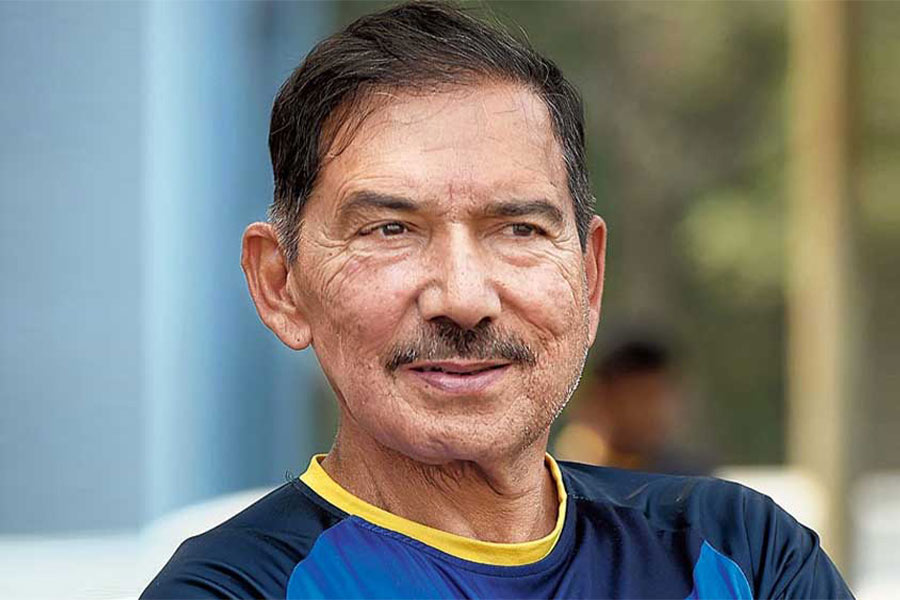There are more people inside Arun Lal than other people.
Cricketer. Coach. Environmentalist. Motivator. Philanthropist. Boy scout.
The kind of person you happen to meet by chance and within minutes you seek your son from a crowd saying, “Come fast, there is this interesting uncle you would really like to meet.”
My best story about him is something few know.
Arun had a press-walla, someone who would iron clothes for him. One day, the press-walla came to Arun and his wife Reena with an unusual request: his son who had been admitted to an English-medium school (Julien Day School) in Kolkata – by itself unusual for someone from an underprivileged background – needed some training in conversational English.
Following initial hesitation (“We thought he would be here today, gone tomorrow”), Arun and Reena took the boy on; he would, as per the arrangement, come to the couple for an hour a day for language familiarisation. Gradually, the brief extended; Reena started covering more subjects. Not merely as in ‘covering’ them. “It got to a point when if we wanted to go on a holiday,” says Arun, “Reena would decline saying ‘Oh, but Bikash has his exams coming up.’”
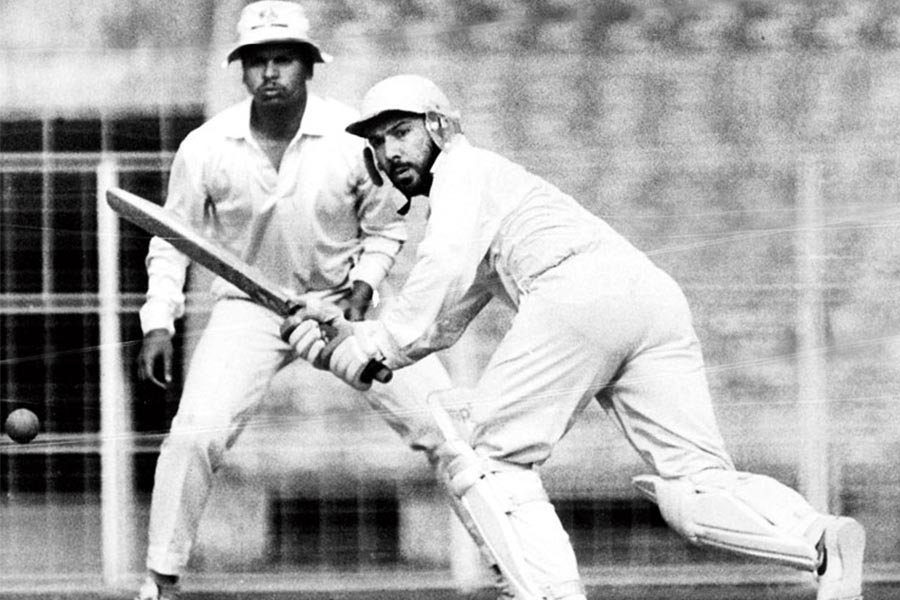
Lal in action during his playing days TT Archives
Two things began to gradually unfold: Bikash started spending more time with the couple, including having a meal before getting home to spend each night on the pavement off Northern Park (Bhowanipore). A few years later, the childless Arun and Reena started liking the boy enough to formally propose an adoption with his parents’ consent and get him to move in with them.
And that is what happened: Bikash would spend the day either in school or at the Lals’ residence off up-market Ballygunge Circular Road in Kolkata just like a family member, except that each night he would leave for dinner with his family of origin.
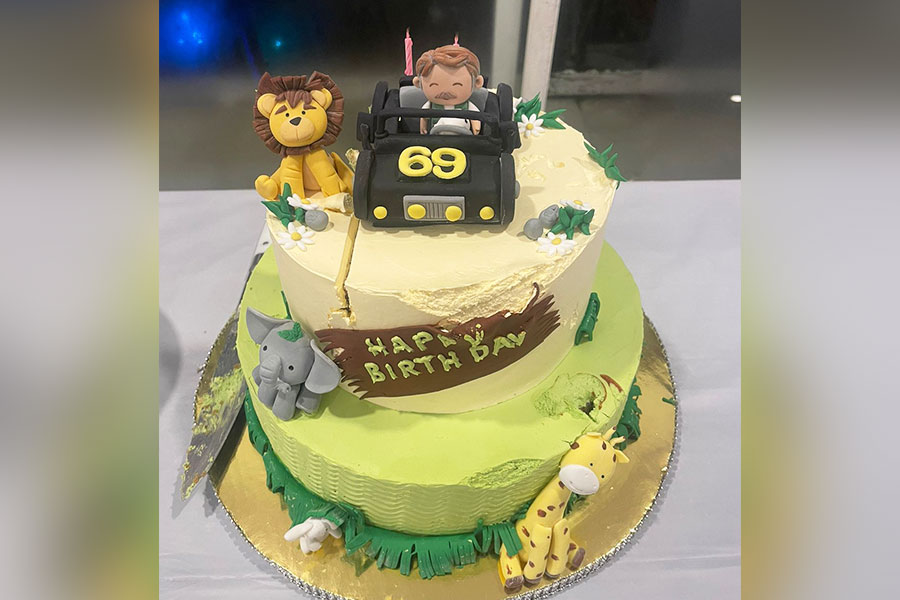
Lal’s birthday cake
From Julien Day, Bikash moved to Assembly of God Church for his plus-two and thereafter to St Xavier’s College for his B.Com. “We did something interesting for him at that point,” says Arun. “We got him to sit for CAT tutorials, so that he would get into the groove of competitive examinations. We said, ‘don’t worry if you fail, just get the experience’.”
Sure enough, Bikash failed. Tried again. Cleared thereafter. Got a call from IIM Bangalore and IIM Kolkata. Opted for the latter. The general Lal family apprehension: ‘Being a mathematically-oriented institution, Bikash might not be able to take the pressure.’
Bikash surprised. In his first year at one of best IIMs in the country, Bikash was elected Lord by his seniors; the following year, he was elected President, an unlikely combination for most IIM-ers and an unusual combination for someone just middling academically.
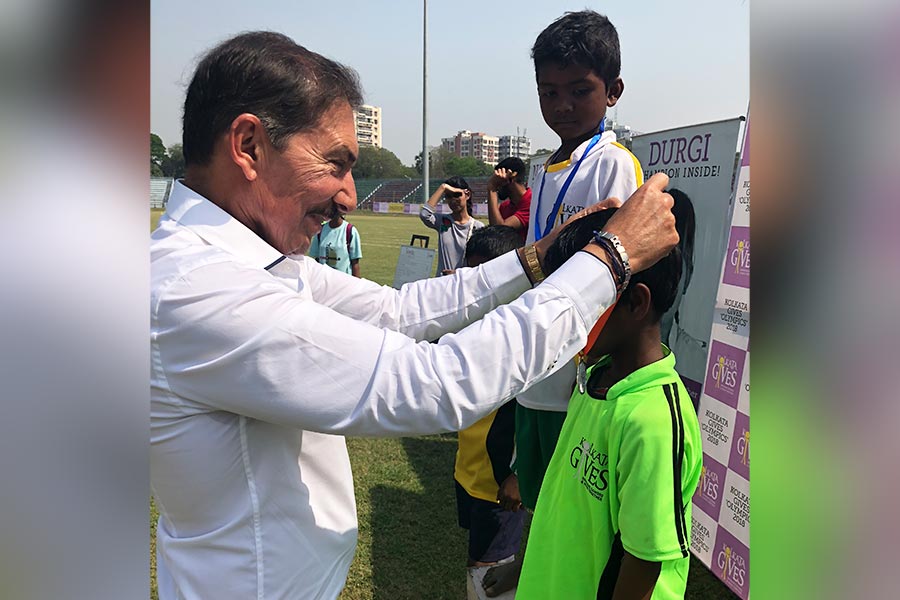
Lal is easiest to meet at 7am at his Maidan cricket academy, when most coaches would prefer to run the place by remote control
Bikash’s next big break was when Deutsche Bank visited the campus to select recruits for summer training in London. Bikash sent in his application for a lark; from among dozens who had sent in their paper, Bikash was selected. When he finished his two-year course, Deutsche Bank took him in. Which explains how Bikash works for a large German investment banking company in Mumbai.
‘Where the real tragedy lies’
“One of the most moving moments in our relationship,” explains Arun, “came when we wanted to move from an apartment into a bungalow and did not have enough money to make it happen. One day we received an envelope by courier from Mumbai, opened to find a demand draft from Bikash for the remaining – significant – amount. On another occasion, I returned from some place to find two young ladies outside my residence. They motioned me to my garage. I walked across. And there was standing a silver-grey Mercedes. Presented by Bikash for getting him where he is today.”
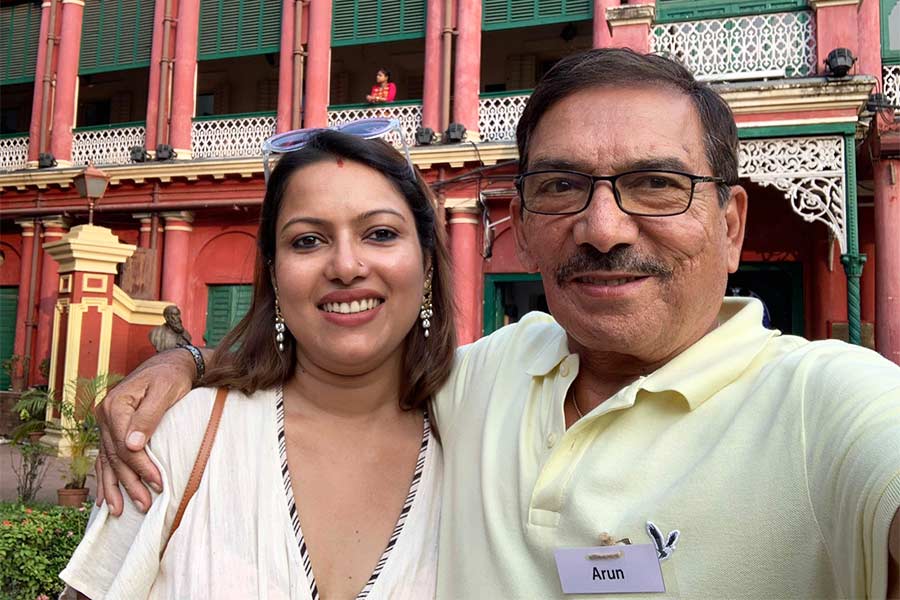
Lal with his wife, Bulbul
Arun once told me: “A number of my friends are willing to fund me to create an NGO that does only this – support deserving underprivileged children – as they feel that by now, I have acquired a core competence in the subject. The reality is that this model does not respond to scale or financial infusion; one must feel strongly about to give a part of one’s life, time, emotion and money to provide an opportunity to someone who can probably do more with life’s chances than I can. But despite most of us having more than enough for this existence, we pay lip service and do hardly little to help someone transform his destiny and those of his succeeding generations. And that is where the real tragedy lies.”
Pushing some envelope. Climbing some mountain
Ah, yes. More than cricketer, coach and philanthropist, the man is a warrior. Life’s warrior. Pushing some envelope. Climbing some mountain. Like when he instinctively quit smoking. Like when he turned vegetarian by choice. Like when he stopped consuming honey on grounds of sensitivity. Like when he agreed to open the batting in a gully cricket tournament on Prafulla Sarkar Street after returning from the West Indies in 1989 ("Bloody quick" is what he said after facing a bowler from Kidderpore). Like when he planted 4,000 trees on his Burul farm. Like when he took on 200 armed miscreants seeking to evict him from his property ("I told him that if they dropped bombs, I would do the same"). Like when he stood at silly point to Javed Miandad. Like when he attended a sports event for marginalised children and remembered that he had half a dozen unused branded running shoes and sent his driver back for them so that he could give them away just like that. Like when he encouraged farm guests to chase butterflies. Like when he worked his charm on my son to strip down to his underpants and swim the Hooghly with him. Like when he put an indie dog-hugging pic as his WhatsApp profile. Like how he is easiest to meet at 7am at his Maidan cricket academy, when most coaches would prefer to run the place by remote control. Like when he would be the first from our team to turn up with binoculars while cleaning the Santragachhi Jheel. Like when he raised the funds for that clean-up while we were still driving back from the jheel the first time. Like when he volunteered to counsel junkies. Like when he fought a 14-hour cancer operation just the other year. Like when he feeds dozens of birds who turn up at the dot of 1pm every day at his Ballygunge residence. Like how he wants to start a women’s vocational centre in the vicinity of his farm.
There is a need for science to find a way to clone him.
